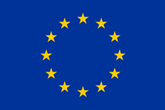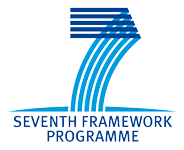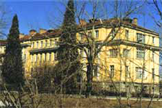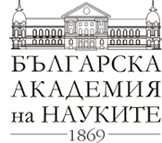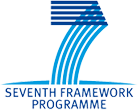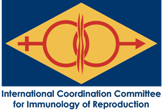ReProForce
FP7-REGPOT-2009-1
ReProForce logo
Slogun
REINFORCEMENT OF THE RESEARCH CAPACITY OF THE BULGARIAN INSTITUTE “BIOLOGY AND IMMUNOLOGY OF REPRODUCTION”
Events
- Jun 21, 2013
Information about the final meeting of ReProForce project participants /17-18 May 2013/
- May 10, 2013
Final meeting of ReProForce project
- Feb 28, 2013
Workshops of the ReProForce experts with business and scientific stakeholders in the IBIR-BAS
- Jan 30, 2013
Information for Open Doors Days in IBIR, BAS, November 29th – 30th 2012.
- Nov 14, 2012
Open Doors days – 2012
Mobility visit to a partner center in Colchester, UK
Nov 2, 2011
Participants: Associate - Professor Margarita Mollova,PhD, Professor Stanimir Kyurkchiev, DSc.
The name of the visited institution: University of Essex, Colchester, UK. Partner - Nelson Fernandez is Professor of Immunology and Director of Cell Bioimaging and Cytometry Unit. The staff of his laboratory consists of 7 PhD students and 2 students doing Master degrees. The interests of Prof. Fernandez are directed to studies on the expression of MHC molecules on the cells surface. New informative experimental techniques are applied in the research carried out in this laboratory such as single particle fluorescent imaging and confocal microscopy, mass spectrometry proteomics, bioimaging etc.
Duration: October 1st – 8th, 2011Aim of the visit – giving lectures at a seminar in Department of Biological Sciences, visit to laboratories, acquaintance with new techniques, discussions about future joint investigations.
During the visit the next activities were realized:
1. At a seminar organized by Prof. Nelson Fernandez, Prof. S.Kyurkchiev read a lecture on “Biological characteristics of stem cells in human endometrium”, where he discussed the data from his laboratory about the mesenchymal stem cells, their biological properties and most of all their immunomodulatory activities. The possibilities for the clinical application of mesenchymal stem cells as immunosuppressors in autoimmune diseases were discussed.
Assoc. prof. M.Mollova read a lecture on ”Sperm specific antigens with clinical significance” and presented the data from experiments carried out in her laboratory and colleagues from andrological practice concerning the identification, purification and characterization of sperm specific antigens which seems to be relevant to some mechanisms of unexplained infertility. Questions were discussed concerning mainly the further testing of this antigen with patien’s sera, proteomic analysis of capacitated spermatozoa with the view of identifying the immunogenic peptides as a joint research with the Proteomics Unit at theUniversity.2. Participation in a Seminar on Bioinformatics at which a guest lecturer (Dr. Fabrice Berger, Leuven, Belgium) presented his experiments and results about using Affymetrix Genechips arrays. Dr. Berger paid particular attention to the so called “outliers” which are samples giving results quite different from the most of the samples. It was supposed that the presence of specific poly-purine patterns in the probe sequence can be the cause for “systemic outliers” in human samples.
3. Discussions with PhD students of Prof. N.Fernandez on their programs as follows:
- Jenny D. presented her data about the participation of poly (ADP-ribose) polymerase (PARP) in the secretion of proinflamatory cytokines by macrophages after stimulation with endotoxin or LPS as well as the engagement of cell receptors such as scavenger receptor 1 and the co-localization of receptor molecules on cell surface.
- Asma Jabeen presented and discussed with us very interesting results about the expression, localization and interaction of MHC molecules on the fetal-maternal surface, particularly the expression of HLA-G, HLA-E molecules. In these experiments a very sensitive technique (foster resonance energy transfer techniques, FRET) is applied to study the co-localization and possible interaction between these molecules.
- Kamaran M. (MSc student) presented his experiments on changes in the behavior of PARP during septic shock using THP1 cell line which can be induced to differentiate to macrophages and the expression of CD14, TLR4, scavengers receptors in the absence or presence of inhibitors of PARP.
4. A very informative visit we had in the Proteomic Unit which director is a Bulgarian colleague named Metodi Metodiev. He is a Senior Lecturer and Director of Proteomics Unit and has special interests in developing a database of personal proteomics profiles of individual samples of breast and colon carcinomas. The major methods used in this laboratory are phosphoaffinity techniques, quantitative mass spectrometry and bioinformatics. A very detailed description of the sophisticated machine as well the procedures followed was presented by Mrs. Gergana Metodieva. We discussed the possibility to have some joint research done using this technique.
5. Visit in the Bioimaging laboratory where we saw a number of very sophisticated microscopes used to study the co-localization of the molecules on the cell surface.
The meetings and discussions we had during our visit in University of Essex with our partners were very valuable and would be very useful for our further collaborations and development of new research projects on the problems briefly outline above.
Персонализирано търсенеМрежата
